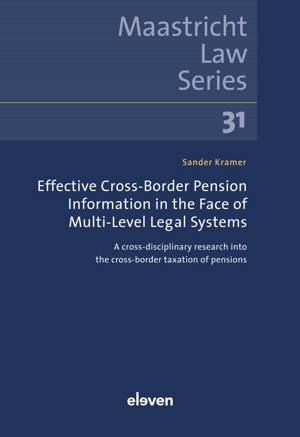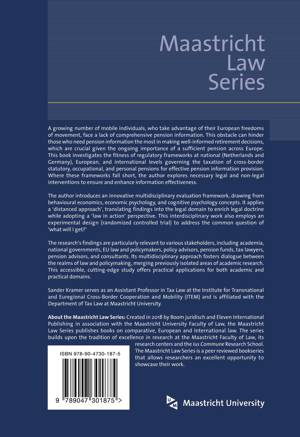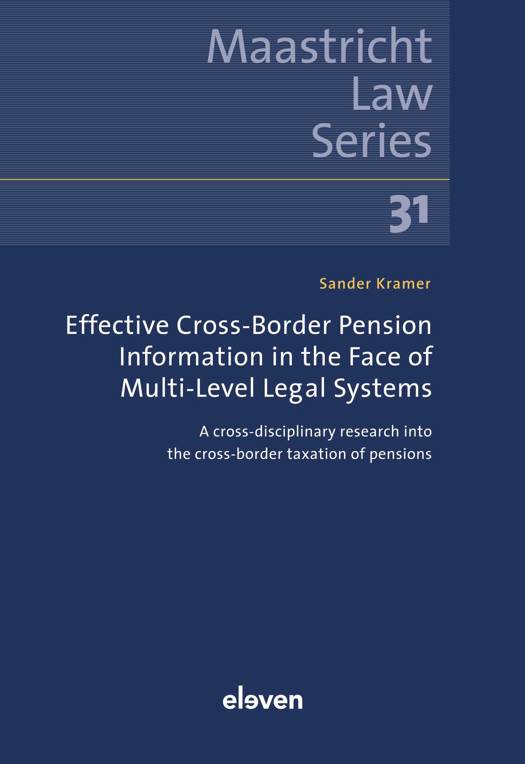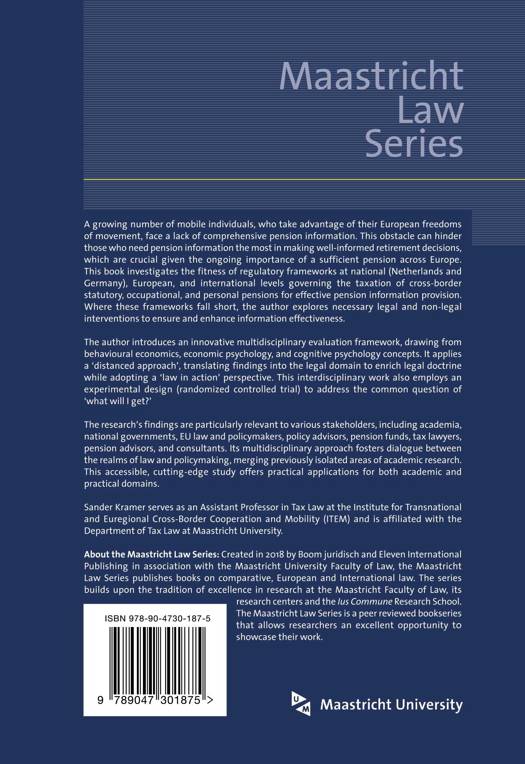
- Retrait gratuit dans votre magasin Club
- 7.000.000 titres dans notre catalogue
- Payer en toute sécurité
- Toujours un magasin près de chez vous
- Retrait gratuit dans votre magasin Club
- 7.000.0000 titres dans notre catalogue
- Payer en toute sécurité
- Toujours un magasin près de chez vous


Effective Cross-Border Pension Information in the Face of Multi-Level Legal Systems
A Cross-Disciplinary Research Into the Cross-Border Taxation of Pensions Volume 31
Sander KramerDescription
A growing number of mobile individuals, who take advantage of their European freedoms of movement, face a lack of comprehensive pension information. This obstacle can hinder those who need pension information the most in making well-informed retirement decisions, which are crucial given the ongoing importance of a sufficient pension across Europe. This book investigates the fitness of regulatory frameworks at national (Netherlands and Germany), European, and international levels governing the taxation of cross-border statutory, occupational, and personal pensions for effective pension information provision. Where these frameworks fall short, the author explores necessary legal and non-legal interventions to ensure and enhance information effectiveness.
The author introduces an innovative multidisciplinary evaluation framework, drawing from behavioural economics, economic psychology, and cognitive psychology concepts. It applies a 'distanced approach', translating findings into the legal domain to enrich legal doctrine while adopting a 'law in action' perspective. This interdisciplinary work also employs an experimental design (randomized controlled trial) to address the common question of 'what will I get?' The research's findings are particularly relevant to various stakeholders, including academia, national governments, EU law and policymakers, policy advisors, pension funds, tax lawyers, pension advisors, and consultants. Its multidisciplinary approach fosters dialogue between the realms of law and policymaking, merging previously isolated areas of academic research. This accessible, cutting-edge study offers practical applications for both academic and practical domains. Sander Kramer serves as an Assistant Professor in Tax Law at the Institute for Transnational and Euregional Cross-Border Cooperation and Mobility (ITEM) and is affiliated with the Department of Tax Law at Maastricht University. About the Maastricht Law Series: Created in 2018 by Boom juridisch and Eleven International Publishing in association with the Maastricht University Faculty of Law, the Maastricht Law Series publishes books on comparative, European and International law. The series builds upon the tradition of excellence in research at the Maastricht Faculty of Law, its research centers and the Ius Commune Research School. The Maastricht Law Series is a peer reviewed bookseries that allows researchers an excellent opportunity t0 showcase their work.Spécifications
Parties prenantes
- Auteur(s) :
- Editeur:
Contenu
- Nombre de pages :
- 763
- Langue:
- Anglais
- Collection :
Caractéristiques
- EAN:
- 9789047301875
- Date de parution :
- 08-12-23
- Format:
- Livre broché
- Format numérique:
- Trade paperback (VS)
- Dimensions :
- 165 mm x 240 mm
- Poids :
- 1238 g

Les avis
Nous publions uniquement les avis qui respectent les conditions requises. Consultez nos conditions pour les avis.







